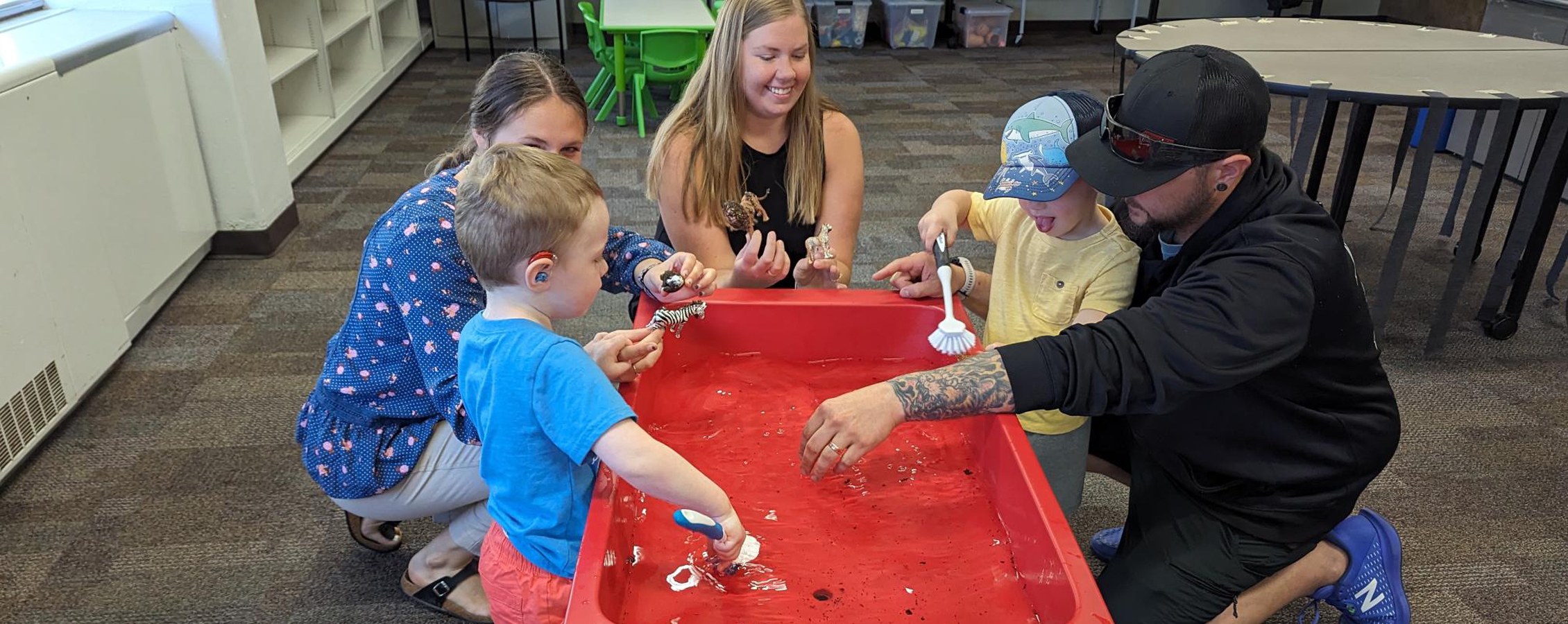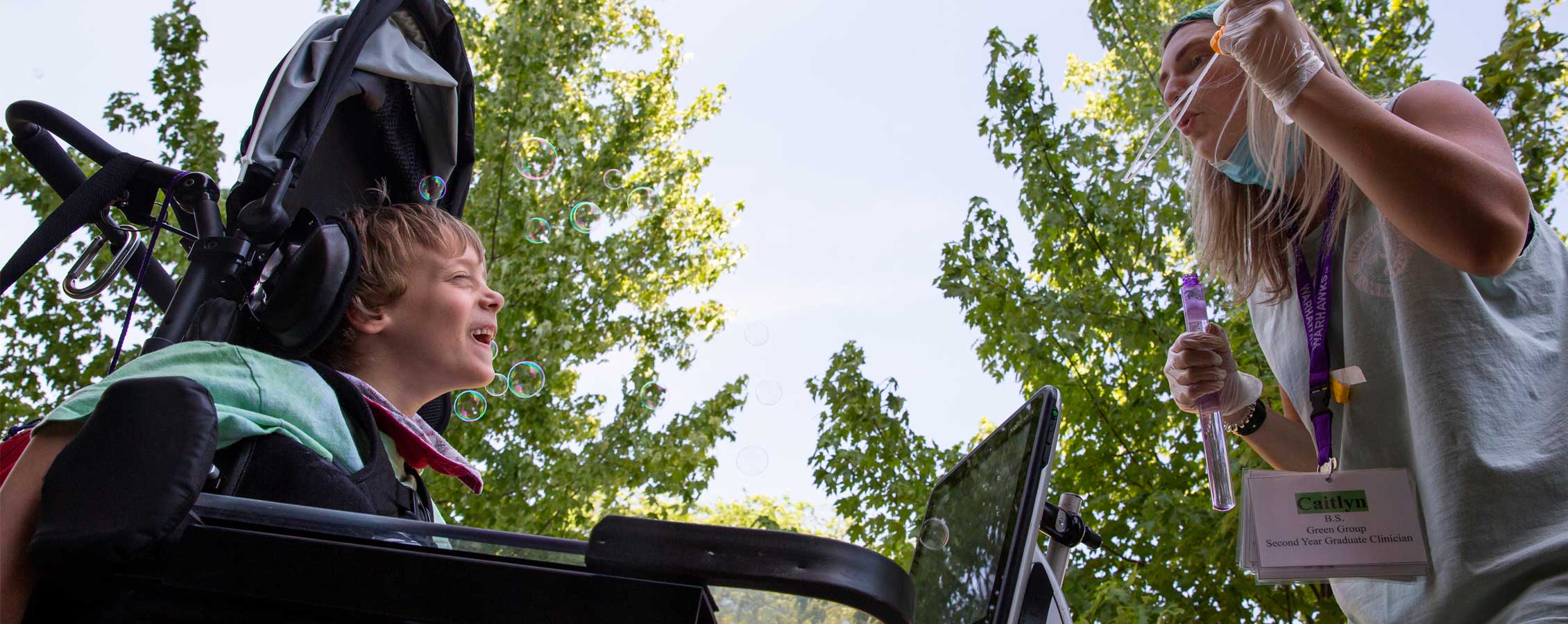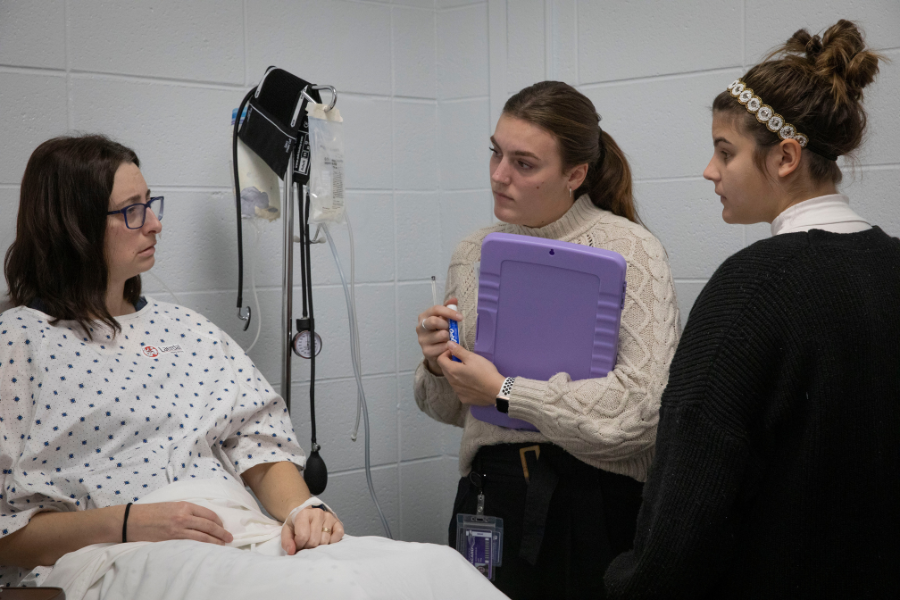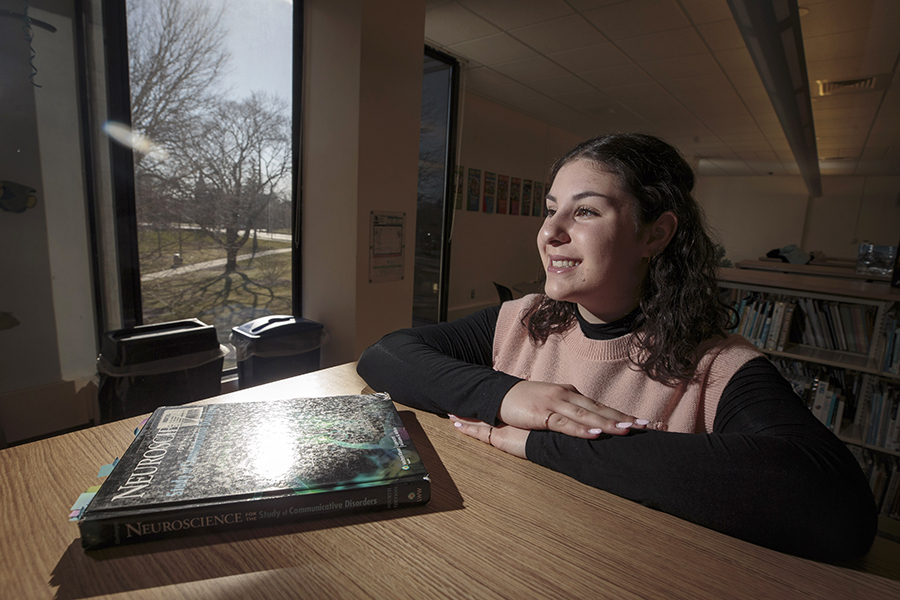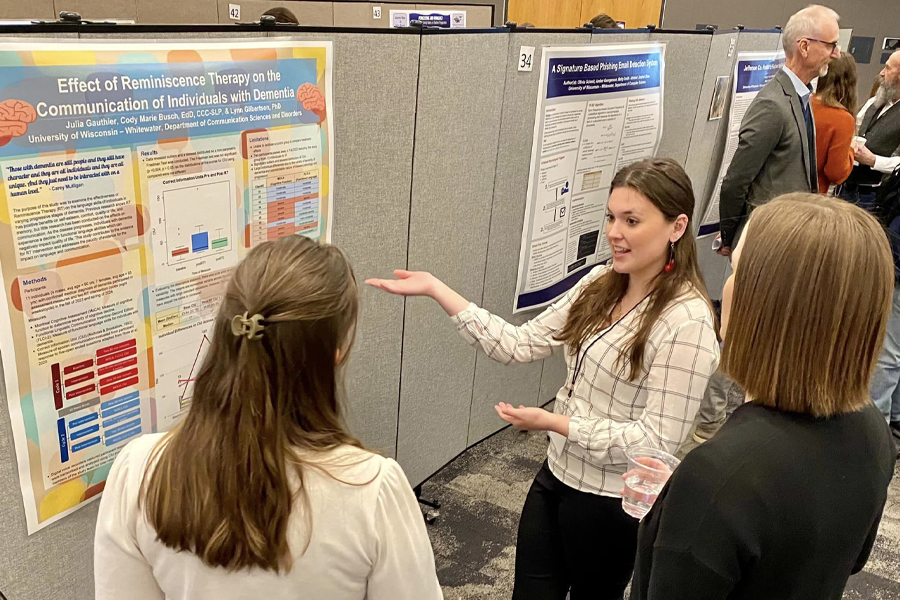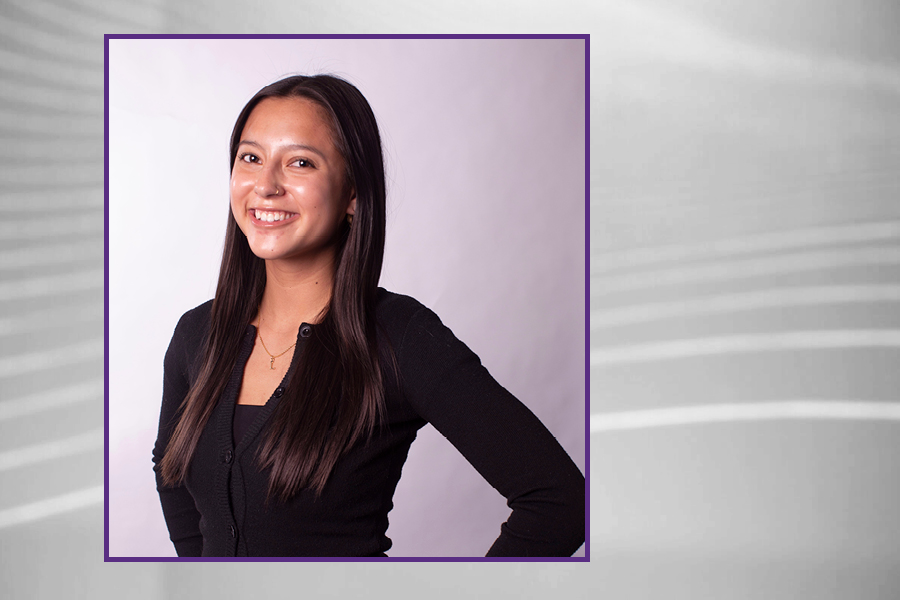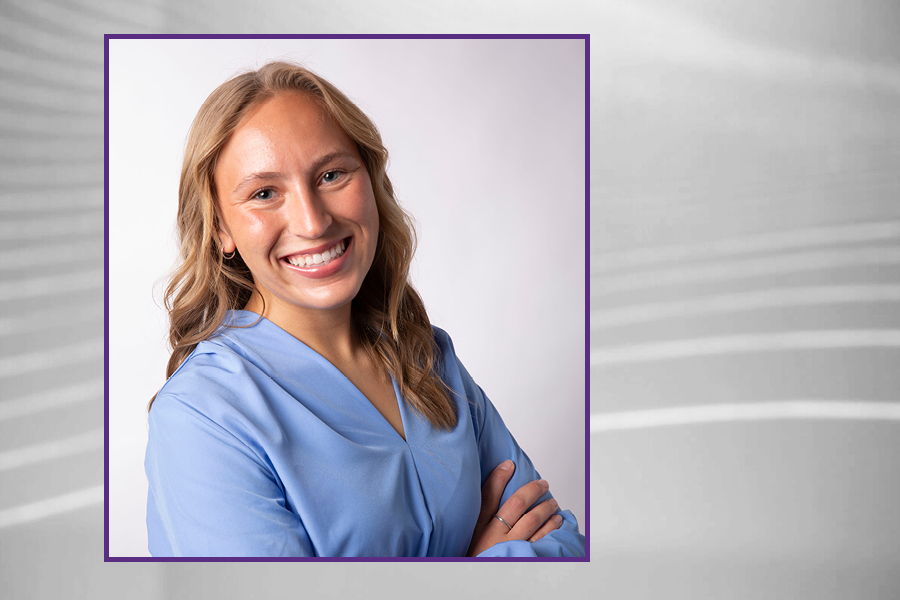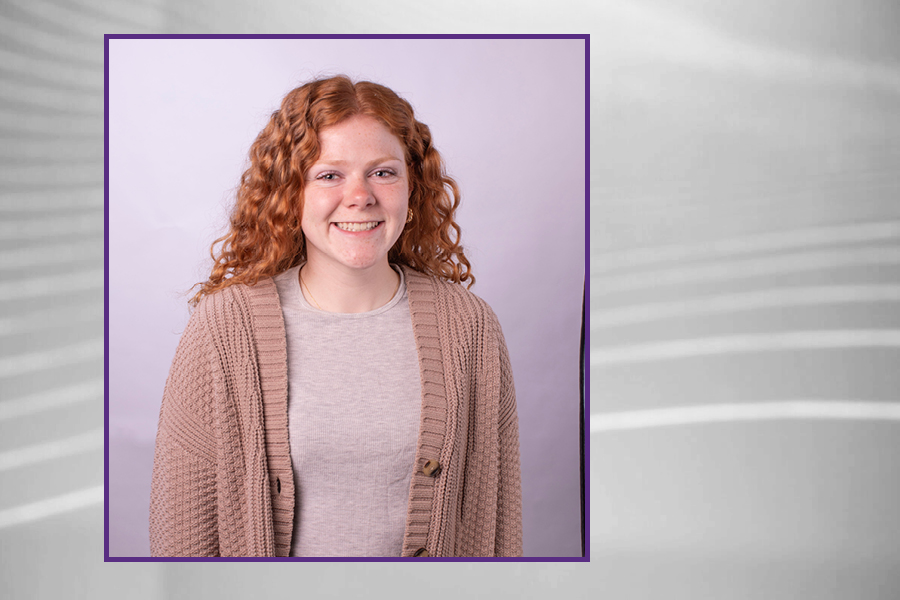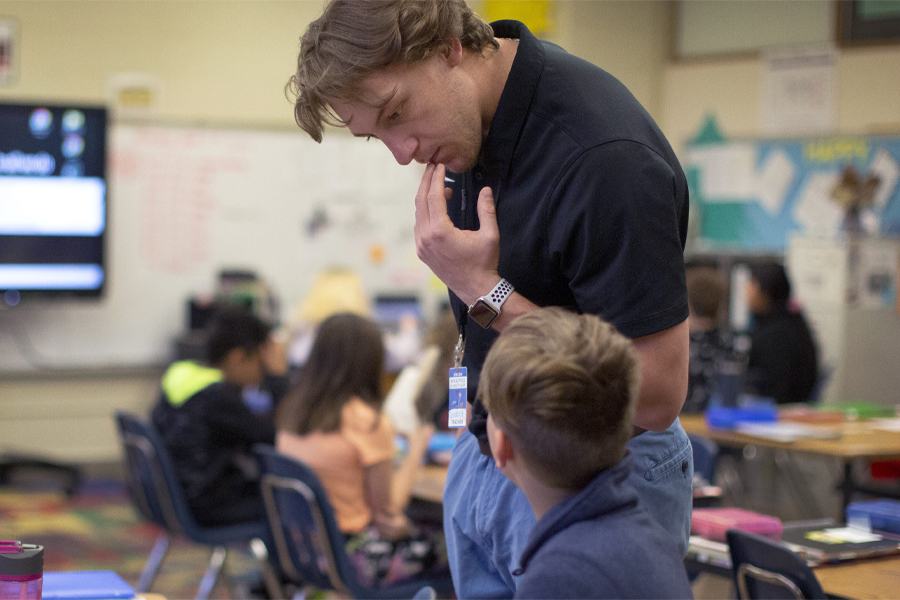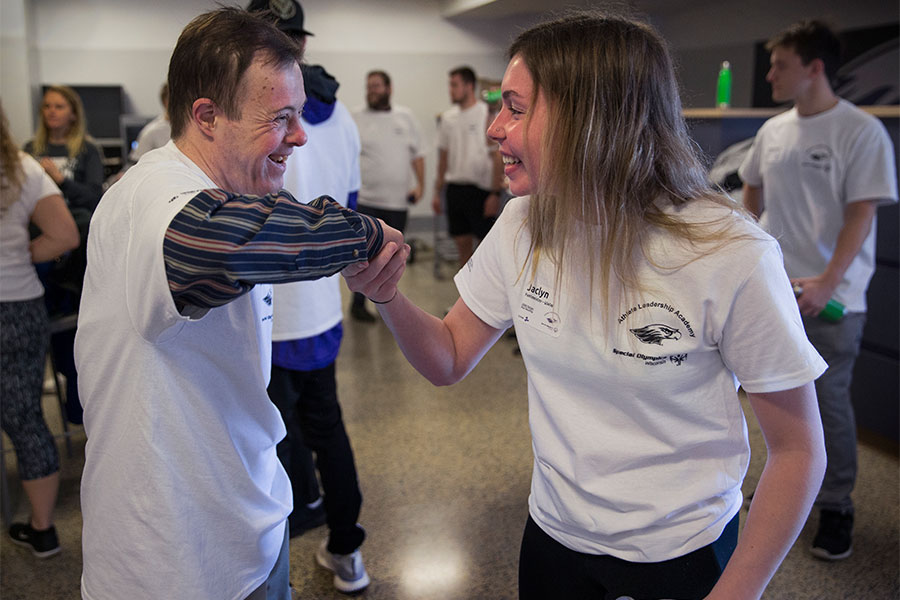COMMUNICATION SCIENCES AND DISORDERS
Bachelor’s Degree Program
According to the U.S. Bureau of Labor Statistics, employment opportunities for speech-language pathologists are projected to grow by 18% over the next decade, while audiologists can expect a 11% increase during the same period.
According to the 2025 U.S. News & World Report 'Best Jobs' list, speech-language pathologists rank ninth among all occupations. Graduates can also expect a strong earning potential, with a median annual salary of $89,000.
If you’re looking for a rewarding career in one of these areas, or have been wondering what education you need to become a licensed speech-language pathologist or audiologist, a bachelor’s degree in Communication Sciences and Disorders will put you on the right track. This pre-professional program will prepare you for entry-level careers in health, education, and human services, as well as for a master’s degree.
A Communication Sciences and Disorders major is also excellent preparation for people looking to pursue work in other helping fields such as early childhood, special education, nursing, social work, or counseling.
CAN WE BRAG A LITTLE?
Why study Communication Sciences and Disorders at UW-Whitewater?
As a Communication Sciences and Disorders major at the University of Wisconsin-Whitewater, you’ll gain a foundation in human development and biological sciences and prepare to work with individuals with diverse and multilingual heritages, and people of all ages.
Small program, big opportunities
We’re incredibly proud that a large percentage of our majors participate in undergraduate research, and many have presented or have been published nationally.
We find these enriching experiences to be a competitive advantage for our program and our students, especially when it comes to applying to graduate programs.

Options to enrich your studies, increase your marketability
Studying at UW-Whitewater means you have access to other academic programs and resources that can help you expand your skills and knowledge — and career opportunities. Many of our students choose to minor in areas such as:
- Allied Health
- Family, Health, and Disability Studies
- Human Resource Management
- Early Childhood Education (for non-education majors)
- Spanish
- Psychology
- Music
- Occupational and Environmental Safety and Health
Here are a few other reasons to consider earning your degree in Communication Sciences and Disorders at UW-Whitewater:
- Go into the community and local schools to assist with hearing screenings
- Attend regional and national conferences, such as Annual Midwest Conference on Cochlear Implants
- Receive guidance on the graduate application process through a professional seminar
- Prepare for your job search with a senior capstone course that includes a mock interview and portfolio
- Apply for various scholarships specific to our major
What our students do
Clinical experiences and campus facilities

In such a hands-on field, it’s important that you gain experience working with clients and practitioners. You’ll have many chances at UW-Whitewater.
On-campus clinic
The UW-Whitewater Center for Communication Disorders works with community members of all ages with varying speech-language-hearing conditions. A learning lab for our graduate students, this clinic also provides observation and volunteer opportunities for our undergraduate students.
Another highlight of our undergrad program is that you can complete your required 25 observation hours prior to graduate school admission.
On-campus and abroad: Additional hands-on experiences

Undergraduate research
Each year, multiple Communication Sciences and Disorders students participate in UW-Whitewater’s nationally recognized undergraduate research program. They often present their research at state — and even national — conferences. Our students dive into topics they’re curious about, as well as assist faculty members with their academic research, from considering the effects of vaping to how concussions in high school sports can lead to long-term memory and communication issues.
Learn more about research »
Travel study
Faculty members from the Communication Sciences and Disorders bachelor’s degree program offer a travel study, which is a semester-long class that culminates with a short-term international trip. Previous and future sites include Australia, New Zealand, Sweden, Finland.
Explore opportunities »
Campus involvement
Many of our Communication Sciences and Disorders majors are members of the National Students Speech Language Hearing Association. This organization allows students to make professional connections, organize and participate in community service projects, and promote speech-language pathology and audiology through various events.
Learn more about our chapter of NSSLHA »
What our graduates do
Communication Sciences and Disorders careers
Our undergraduate students are prepared to enter the workforce right after graduation. They find Communication Sciences and Disorders jobs in health, human services and education, such as:
- Applied behavior analyst therapist
- Behavioral therapist
- Behavioral treatment therapist
- Family support specialist
- Program coordinator
- Special education paraprofessional
- Special education teacher assistant
- Therapy technician
- Medical billing specialist
- Hearing aid specialist
- Sales and marketing for speech, language, or hearing industry
Graduate and professional school
With the ultimate goal of becoming a speech-language pathologist or audiologist, most of our majors attend graduate school after completing their bachelor’s in communication sciences and disorders.
Our Communication Sciences and Disorders faculty
Our faculty members have expertise and research interests in many areas, including language acquisition, hearing conversation, cognition, and voice and swallow.
Want to learn more about a degree in Communication Sciences and Disorders? comdis@uww.edu
UW-Whitewater offers the following Communication Sciences and Disorders degrees:
- Bachelor of Science — Communication Sciences and Disorders | 4-year plan
- Bachelor of Arts — Communication Sciences and Disorders | 4-year plan
Minors:
In addition to UW-Whitewater’s general education requirements, as a Communication Sciences and Disorders major, you’ll take a variety of core and elective classes from across disciplines, such as:
- Hearing and Speech Science
- Anatomy and Physiology of Human Communications
- Speech and Language Disorders in Children
- Writing in the Sciences
- Psychology of Adolescence
- Race and Ethnic Relations
- Basic Social Statistics
Post-baccalaureate program:
This is a specialized course sequence that typically can be completed in one year, allowing a student with a bachelor's degree in another field to prepare for application to a master's degree program in speech-language pathology. Learn more about the post-baccalaureate program »
Master's degree:
Explore our Master of Science (M.S.) in speech language pathology »
To apply, you’ll complete the UW-Whitewater standard application for admission and indicate your interest in earning a degree in Communication Sciences and Disorders.

